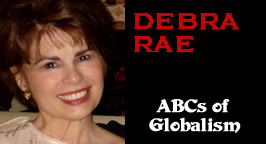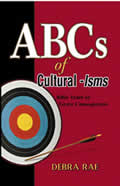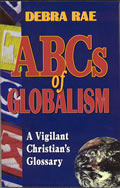EMERGING
UNIVERSALISM
PART 3
By
Debra Rae
July 12, 2014
NewsWithViews.com
Vatican announces indulgences for World Youth Day
Part 3: We’re All Catholics
Arguably, unityis a coveted state in that itspells power; butfor most Westerners, its attainment among religionists is especially elusive. In contrast, an Eastern mindsetposes the provocative question, “Why struggle to open a door between us when the whole wall is an illusion?”[1] In other words, convince folks that doctrine is illusion, and the struggle for unity is over. Simple as that.An historic encounter at a Kenneth Copeland-sponsored conference of church pastors and leaders demonstrated how this principle works.[2]
Appeal to Consensus
At Copeland’sevent, reference was made to an auspicious occasion when, in November 1999, Lutherans and Catholics gathered in Augsburg, Germany to sign a first-ever formal doctrinal agreement between Rome and the Reformed church. Later, Methodists signed this celebrated accord on justification via works (Catholic position) and/or grace by faith (biblical position).
Theirsis a "consensus in basic truth" as if to announce,“You say /puh-TAY-toe/, and I say /puh-TAW-toe/,” but “let’s call the calling off—off!”[3]
Since the 1962 Second Vatican Council, the Catholic Church has dedicated itself to advancing global, inter-religious cooperation. Mother Teresa affirmed Vatican II, intimating that adherents to all religions are somehow saved through the Roman Catholic Church. Not surprisingly, the World Council of Churcheswarmly welcomed the joint declaration as “a small, but significant step" toward healing a major division that has marked Christian history.Indeed, the motto of the World Council of Churches, “One Church for One World,” points to a religiously pluralistic international community, sadly with no rightful promise of salvation.
Protestant and Catholic authorities agreed: Unity trumps doctrine.[4] Presiding bishop of the Evangelical Lutheran Church in America, the Rev. H. George Anderson described The Joint Declaration on the Doctrine of Justification as "a significant milestone in the reconciliation of our two church traditions." In similar fashion, Roman Catholic Archbishop Alexander Brunett (Seattle) lauded it as "a powerful gift from God." "What we understand anew,” he added, “we must teach anew and live out together anew."[5]
Appeal to Celebrity
Via video, a surprise celebrity greeted the Copeland Conference from afar. Joyful that God is at work worldwide, but sorrowful for the reality of religious separation, Pope Francis called for the miracle of unity hitherto thwarted by“misunderstandings and sin.”Protestant leaders in attendance met his “language of the heart” with swelling enthusiasm. Delighting in a private papal visitation, Kenneth Copeland responded in kind: “My Dear sir, thank you so much from the bottom of my heart. These leaders represent tens of thousands who love you and believe God is with you. Having prayed for (and with) you in the spirit, we believe we received.”
Copeland continued, “Our desire, sir, along with you, is expounded in Ephesians 4:3: ‘Until we all attain to the unity of the faith, and of the knowledge of the Son of God, to a mature man, to the measure of the stature which belongs to the fullness of Christ.’” To this, Copeland added, “We bless you and receive your blessing. With our hearts, souls, and might, we bless you. We thank God for you. We all declare together [in unison], ‘BE BLESSED.’”[6]
Appeal to the Spirit of Elijah
Self-identifying as Joseph, if only by inference, the Pontiff presumes to be a source of nourishment in a time of famine. With compelling sincerity, the Pope invited his Protestant brothers to embrace him, much as Joseph’s siblings embraced their estranged brother in Egypt.
With the presumption of "reasonable certainty," said claims were "softened" by sidestepping bothersome absolutes.[7]
Enter, Bishop Tony Palmer. Setting the stage for the Pope’s “fireside chat,” this good-looking, good-humored South African Charismaticleader recounted his journey inturning his heart toward Rome. His missionnow isto build kingdom, not empire—this, in the spirit of Elijah, which Palmer likened to the spirit of reconciliation embodied inhis beloved mentor, Pope Francis.[8]
Appeal to the Collective “We”
In the Greek, “schism” is likened to torn material. For Christians to be perfectly joined together is for them to be as one whole, repaired fabric—not scattered, damaged remnants of a would be “crazy quilt.”As all the men of Israel were knit together into “one man,”so must the church be one.[9] Referencing the Augsburg accord, Copeland reminded attendees thatJesus prayed for spiritualunity: “I have given them the glory that you gave me, that they may be one as we are one—I in them and you in me—so that they may be brought to complete unity. Then the world will know that you sent me and have loved them even as you have loved me.”[10]
Ideally, Christian believers all speak the same thing with no divisions or schism among them, but this is never accomplished by compromising biblical doctrine, as the Bishop and Kenneth Copeland suggest.[11] To embrace an all-inclusive, milk-toast spirituality that all can affirm may well be politically correct, and living peaceably with all men may indeed be scriptural; but doctrinal mix (syncretism) is not.
Nevertheless, by marginalizing doctrine as something to be sorted out in the afterlife, Palmer assured naysayers, “There’s no more protest, so how can there be a Protest-ant church?” The President of the Lutheran Church-Missouri Synod disagrees. He argues that the accordis "an ambiguous statement whose careful wording makes it possible for the Pope's representatives to sign without changing, retracting, or correcting anything that has been taught by the Roman Catholic Church since the time of the Council of Trent in the 16th century."[12]
Case in point: An indulgence is remission of temporal punishment due for sins that have been forgiven.Rightly so, in 1517 when Luther nailed his 95 Theses on the door of the Castle Church at Wittenberg, he protested sale of indulgences and the Holy See's supposed spiritual power to remit sins.[13] Palmer declared Luther’s protest to be passé—an illusion, if you will—but wrongly so.Indulgences are nowhere found in scripture, yet just this year, to ensure a spiritually fruitful World Youth Day, Pope Francis authorized a special indulgence for those attending the Rio de Janeiro event's liturgies and prayer services. Participants could receive one plenary (full) indulgence each day for meeting the usual conditions and a partial indulgence for Catholics who with the pope offered prayers for young Catholics.[14]
Appeal to Universalism
“The ministry of reconciliation is as vital as a ministry of evangelism”; yet, to date, Palmer lamented, “No evangelicals have signed on to the accord.” Palmer challenged conference attendees by insisting, “This needs to be fixed.” He noted correctly that “catholic” means “universal,” but he was misguided in insisting, “If you’re born again, you’re a Catholic.” For this leap in logic, Palmer offered no biblical proof, nor was it demanded of him.[15]
|
Palmer added, for all those years of separation, the Word alone was the argument, but “Luther’s protest is over.Is yours?”With that, Palmerdiminished centrality of the Bible and conveniently ignored this part of Jesus’ unity prayer: “Sanctify them to live in accordance with the truth; your word is truth.”[16] Palmer’s premise that “doctrine need not separate religionists”comports with Rumi’s query, “Why struggle to open a door between us when the whole wall is an illusion?”
True, characterizing the wall of doctrinal separation as an illusion may well fosterunity, but notthe unity to which Jesus referred.[17] Ecumenicalism, interfaithism, and universalism represent error, not to be embraced by believers who “hold firm to the trustworthy message as it has been taught.” The idea in Titus 1:9 is to “encourage others by sound doctrine and refute [not affirm] those who oppose it.”
More to follow in Part 4.
Click here for part -----> 1, 2, 3, 4,
� 2014 Debra Rae - All Rights Reserved
Footnotes:
1.
Rumi.
Accessed 24 June 2014
2.
On Jan. 21, 2014, Kenneth Copeland Ministries received a personal video
message from Pope Francis at KCM’s annual Ministers’ Conference.
Over the past decade, the Pope’s emissary, the Rt. Rev. Tony Palmer
(former director of Kenneth Copeland Ministries’ South African
office and co-founder of The Ark Community, an international and interdenominational
community of Christians based in the United Kingdom) has been extensively
involved with the Catholic Charismatic Renewal (CCR). In 2003, Palmer
was invited by the Catholic Church to move to Europe and minister to
Catholics within the CCR worldwide, as a non-Roman Catholic minister.
3.
Louis
Armstrong Let's Call the Whole Thing Off Lyrics. Accessed 25 June
2014
4.
David E. Anderson, Office of Religion News Services, Presbyterian Church
(U.S.A.) from the Worldwide
Faith News archives.
5.
The
Joint Declaration on the Doctrine of Justification. Accessed 25
June 2014.
6.
Pope
Francis Sends Video Message to Kenneth Copeland - Lets Unite. Accessed
25 June 2014
7.
The son of Jacob, Joseph was sold into slavery by his jealous brothers.
In Egypt, Joseph rose to power, second only to Pharaoh. When famine
came to Canaan, Joseph showed extraordinary mercy to his brothers.
8.
Elijahch allenged the 450 prophets of Baal and the 400 prophets of the
false god, Asherah, to a showdown on Mt. Carmel, where God's fire fell
from heaven and consumed Elijah’s offering, the wood, the altar,
the water, and even the dust around it. He went on to prophesy deaths
of Ahab, King Ahaziah, and Jezebel; his successor Elisha followed in
the footsteps of Elijah. Theirs was a spirit of power, not so much conciliation.
9.
Judges 20:11.
10.
John 17:23ff.
11.
Matthew 24:35, Mark 13:31, Luke 21:33: Heaven and earth will pass away,
but the Word? Never.
12.
The Rev. A. L. Barry.
13.
Martin
Luther, the Sale of Indulgences, and the Reformation. Accessed 25
June 2014
14.
Vatican
announces indulgences for World Youth Day. Accessed 25 June 2014
15.
To be born again—i.e., “born from above”—is
prerequisite to seeing the kingdom of God (John 3:3). Wesley explains:
“In this solemn discourse, our Lord shows that no external profession,
no ceremonial ordinances or privileges of birth, could entitle any to
the blessings of the Messiah's kingdom…an entire change of heart,
as well as of life, is necessary for that purpose…”
16.
John 17:18
17.
The biblical position of verbal plenary holds that in its original language
(Hebrew and Chaldeac, Old Testament; Greek and Aramaic, New Testament),
all the Bible, Genesis to Revelation, is fully “God-breathed”
to the slightest stroke of the smallest alphabet letter. (Matthew 5:18)
“By the Holy Spirit being borne along (literal Greek)” the
Bible’s forty penmen “spoke from God” (2 Peter 1:20-21),
not as men with “cunningly devised fables. (2 Peter 1:16)













 Share
This Article
Share
This Article






